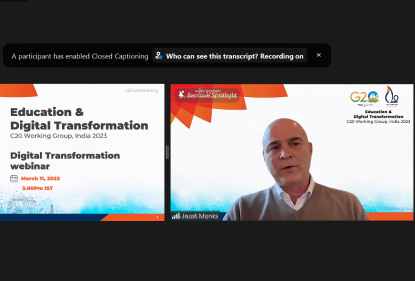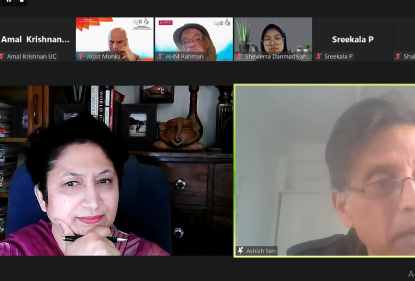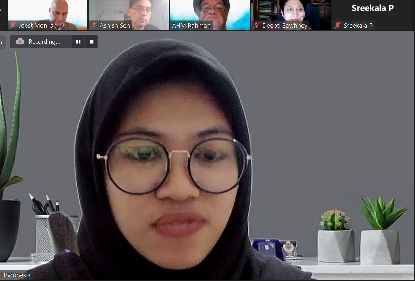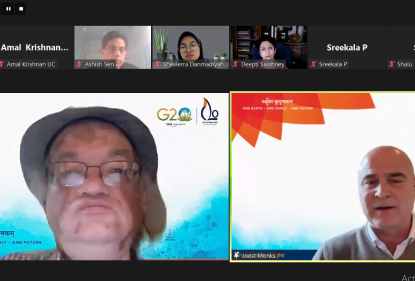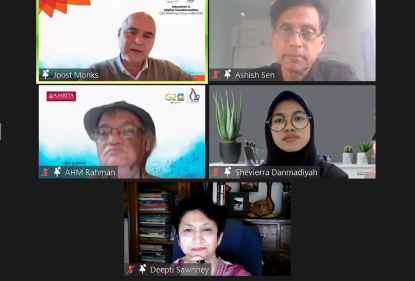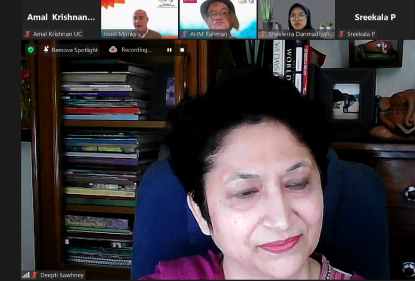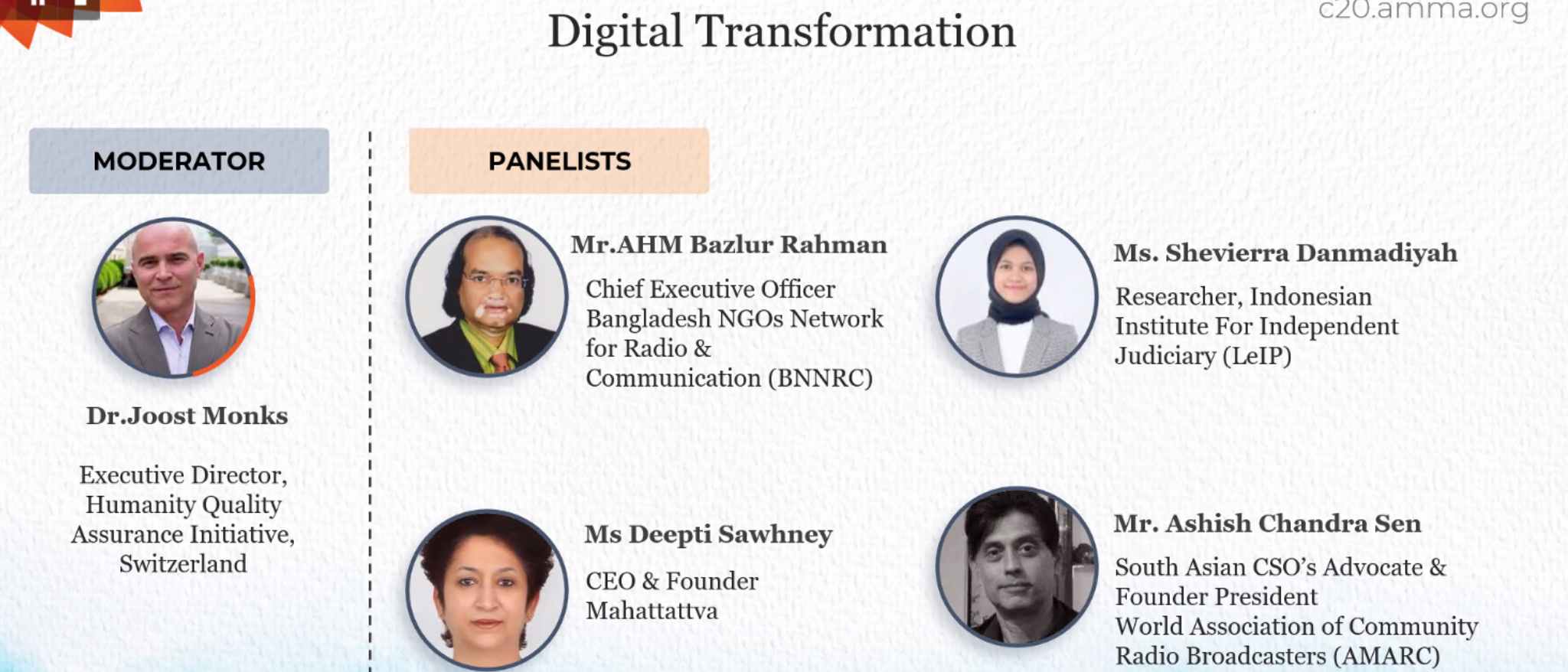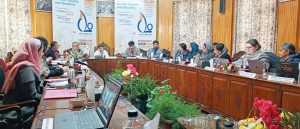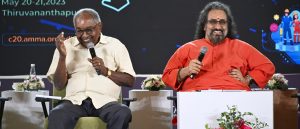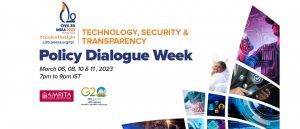Technological solutions could help solve the world’s challenges and address social issues
The Education and Digital Transformation Working Group organized a Virtual Seminar on Digital Transformation on March 11, 2023. Over 28 attendees representing eight countries, including India, attended the event. Dr. Joost Mönks, EDT International Coordinator and Executive Director of Humanitarian Quality Assurance Initiative moderated the panel discussion.
The panellists were AHM Bazlur Rahman, CEO of Bangladesh NGO Network for Radio & Communication (BNNRC), Bangladesh, Shevierra Danmadiyah, Researcher, Indonesian Institute for Independent Judiciary (LeIP), Indonesia, Deepti Sawhney, CEO and Founder, Mahattattva Education Foundation, and Ashish Chandra Sen, Founder and President, World Association of Community Radio Broadcasters (AMARC) from India. The panellists shared their perspectives and recommendation in the context of digital transformation and its potential to bring it to the attention of the G20 forum.
Dr. Mönks emphasised that inclusive human-centered digital design and a value-principal-action design approach may be adopted to promote inclusion. The second point raised was the need to view technology as a human construct to promote digital public goods, human compassion, ethical regulation, and governance to attain the United Nation’s Sustainable Development Goals. Given this background, he welcomed the panellist to share their insights based on their expertise and experience in digital transformation.
AHM Bazlur Rahman, on an optimistic note, said he believed that the events organised by the EDT Working Group could help CSOs and experts connect and amplify a unified voice to create a positive global impact. According to him, employing innovative social models can improve the lives of disadvantaged rural populations. He stressed leveraging digital technology to support human rights, social justice, and sustainable development. In addition, he said that to achieve this goal, a long-term framework must be set in place, highlighting the need for accountability and inclusive internet and digital governance.
He highlighted the seven areas for digital transformation that can contribute to the digital economy and a more equitable and just society. The focus areas include: connecting all people to the internet, avoiding internet fragmentation, protecting data, applying human rights principles online, accountability for discrimination and misleading content, accessibility to and using technology-enhanced security, and improving transparency for advancing societal well-being.
Shevierra Danmadiyah shared her experience as a member of the C20 Working Group on Digitalisation in Indonesia in 2022. She outlined two priority areas. The first is to create an inclusive digital id, a health data system and a personal data protection regulation policy. The second was employing a human rights-based approach to a cross-border data flow. She adds that “data is not just the thing we can capitalise” but people’s rights must be protected. Ethical contracts must be set in place to safeguard data from being misused.
Sawhney thinks digital transformation in a technological era must support real-time learning, develop higher-order thinking skills (HOTS), and present opportunities for children to facilitate self-directed learning. It helps to ensure scalability, accessibility, speed, and affordability for diverse learners. She said while digital transformation focuses on developing software, creating infrastructure, and imparting teacher training on technology integration along with systems and process support, it must consider the needs of children in underserved communities, like rural areas.
Ashish Chandra Sen said it is essential to first address the barrier of accessibility. He asked, “Who’s access, and what access?” adding that it is crucial to address the issues of diversity, inclusivity, and affordability. He added that socio-economic disparities and the cultural, linguistic, and geographical disparities concerning access must be addressed in the digitalisation of education while factoring in cost, which is most important for digital initiatives. Community radio stations collaborated with schools and educational centers during the pandemic, and this exercise paid high dividends.
While access to the internet continues to remain problematic even today, he suggested that the use of a blended multimodal approach of distance learning along with community-based media and engagement can support the inclusive education ecosystem. In addition, he said, appropriate capacity building and community exposure to the relevant technology, along with actively seeking collaborations with the government, corporates, academic institutions, and civil society organisations, could lead to creating an enduring and resilient model that supports marginalised, and underprivileged communities while building a digital economy.
Dr. Mönks summarised the recommendations shared by the panellists. He stated that technological solutions could help solve the world’s challenges, including appropriately addressing social issues to ensure inclusivity, equitable justice, accessibility, and affordability. Human-driven technology architecture can aid in creating a space for responsible digitalisation along a blended dimension approach platform with automation that supports digital transformation. Taking the example of India’s Diksha platform, he said that the future of digitalisation could include a multimodal model where radio and television, in collaboration with distance learning, can address the challenge of accessibility in education to a certain extent.
